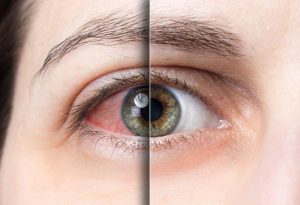You might have heard different opinions on the internet regarding urgent care clinics. “Patients suffering from minor health problems or injuries can visit urgent care clinics and people with major health issues cannot.” But is this belief even true? Let’s find out!
Understanding how urgent care clinics can help you deal with various health issues. In the blog, we’ll guide you about the actual reality of urgent care clinics so you can make better decisions about your health in the future.
So, let’s unfold some common misconceptions about urgent care services and learn the reality.
Debunking 6 Myths About Urgent Care Services
1. Urgent Care Services Only Treat Minor Injuries
One of the most common misunderstandings is that urgent care only deals with minor medical problems.
Most people believe that they have to go to specialized care for diseases like skin infection, allergic reactions and high blood pressure, but this is not the case.
In fact, urgent care clinics have expert medical professionals who can deal with a diverse range of non-life-threatening health issues.
This covers a wide range of major health issues, such as fever, flu, pink eye, ear infections, strep throat, allergies, diabetes, hypertension, bronchitis, asthma, COVID-19, skin problems, parasitic infections/infestations and even simple minor fractures, etc.
Therefore, you can visit urgent care services for immediate attention to minor injuries, acute and chronic conditions, and other non-life-threatening health concerns.
Whether you need to see the doctor for a sprain or seek treatment for major health concerns like diabetes, urgent care services are ready to provide prompt medical attention tailored to your specific needs.
2. Limited Medical Expertise In Urgent Care Services
Another common myth is that urgent care clinic staff are less qualified than emergency care facilities or hospitals.
In reality, you will find an experienced team of medical experts in urgent care clinics, like nurse practitioners, board-certified medical experts, physicians, lab and radiology technicians. They make sure every patient gets comprehensive care according to their medical needs.
Furthermore, urgent care services are sufficiently equipped with the necessary equipment, ensuring quality lab and radiology testing for walk-in patients.
3. No Follow-Up or Continuous Care in Urgent Care Clinic
Many people believe that urgent care only provides one-time treatment and doesn’t offer continuous care, but this is not true. Urgent care clinics ensure the best medical services with continuous care.
If you need follow-ups, your doctor will schedule regular appointments to monitor your progress and adjust the treatment plan as necessary.
For conditions like diabetes, hypertension, and chronic respiratory issues, regular follow-ups are vital. You do not need to worry, as these check-ins allow doctors to monitor progress, adjust treatments, and provide necessary support as and when required.
4. Urgent Care Services Are Only for Adults
One common misconception about urgent care services is the belief that they exclusively cater to healthcare concerns in adults.
The reality is that urgent care clinics are not only restricted to adults alone. Whether you need to consult a healthcare provider for your child or an elderly individual, you can easily contact urgent care clinics.
These facilities are equipped to address various medical needs, including minor injuries, illnesses, and other urgent but non-life-threatening conditions for patients across the age spectrum.
5. You Have to Wait for Long Hours
You might have heard people saying that you need to wait 3 or 4 hours in urgent care clinics as they have a high influx of patients.
In reality, the average waiting time in urgent care centers is 15-30 minutes. However, actually, the waiting time depends upon the number of patients and the complexity of the cases.
For instance, if you find a high number of number patients, you can still reduce your waiting time by booking a prior appointment before walking into the clinic and visiting at the scheduled time.
In simpler words, urgent care clinics aim to minimize your waiting time.
6. Urgent Care is the Same as the ER
Emergency care and urgent care services are frequently mixed, yet they serve distinct medical purposes. Although both deal with health concerns, they vary significantly in severity.
Emergency services are designated for critical medical conditions, encompassing life-threatening ailments like heart attacks, kidney failure, broken bones, cancer, and end-stage diseases.
On the other hand, urgent care clinics are specifically tailored to handle an array of minor illnesses and injuries, including conditions such as sprains, cuts, strains, and bruises.
Although both services come under the broad umbrella of medical care, the crucial difference lies in the nature of the conditions they are equipped to handle.
Urgent care is ideal for swifter treatment of minor acute and chronic illnesses, thanks to its streamlined processes. In contrast, emergency care services require more time for diagnosis and treatment due to the critical nature of the disease.
Conclusion
All in all, now that you know the reality behind all the revolving myths, you’ll never be confused again when you hear the popular beliefs around you.
The reality is that urgent care clinics are for everyone, young and old, and they specialize in treating minor and major illnesses that do not require emergency care facilities.
If you need to consult a healthcare professional for any health concern, you can either walk into urgent care centers or even book prior appointments to minimize your waiting time.
So, when it comes to providing a wide range of healthcare services, urgent care centers can be your go-to option for immediate relief.


























